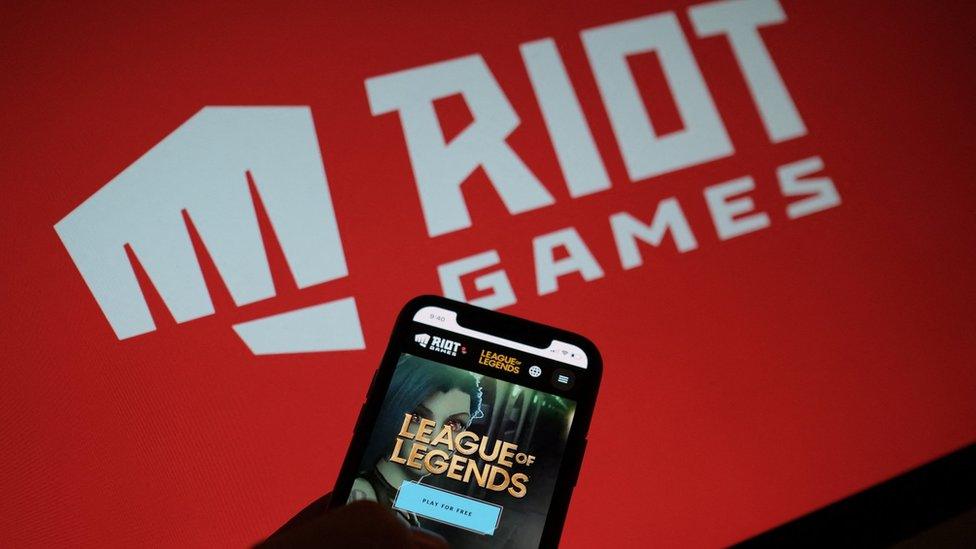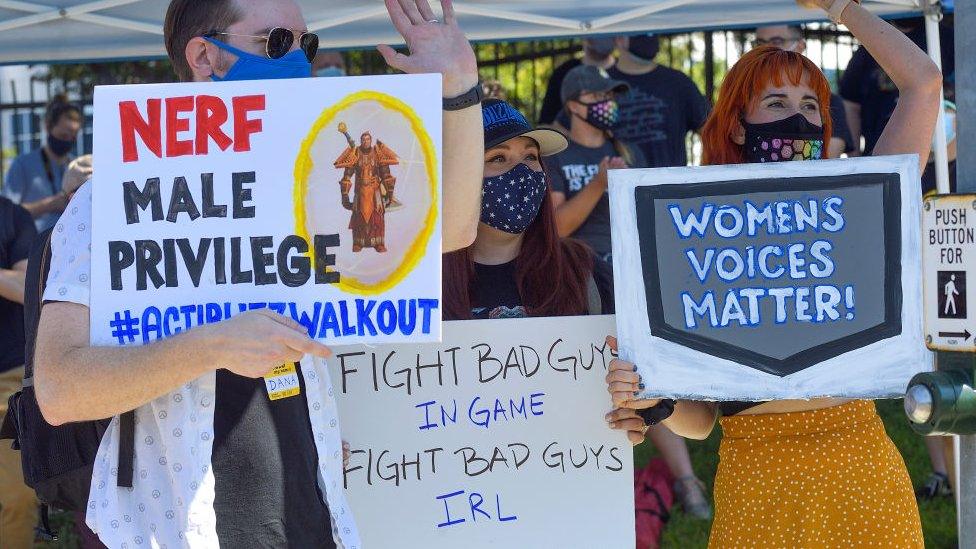Riot Games to pay $100m in discrimination case
- Published

Riot Games, the studio best known for League of Legends, has agreed to pay $100m (£74.3m) to settle a 2018 class-action gender discrimination case.
The settlement will "remedy violations against approximately 1,065 women employees and 1,300 women contract workers", California's Department of Fair Employment & Housing (DFEH) wrote, external.
DFEH said the firm engaged in "systemic sex discrimination and harassment".
Riot Games said it must "take responsibility for the past".
The company will pay $80m (£59m) to members of the class action suit and about $20m (£15m) will cover legal costs.
The 2018 case followed investigations by the Los Angeles Times and the news website Kotaku.
According to the original complaint against the company, Riot was accused of fostering a "bro culture" and faced a range of allegations.
These included that women had been sexually objectified, with an email chain that rated the company's "hottest women employees", and that unsolicited images of male genitalia had been shown to workers by their bosses and colleagues.
Industry problem
As part of the settlement, Riot agreed to workplace reforms, independent expert analysis of its pay, hiring, and promotion practices, and to be monitored for instances of sexual harassment and "retaliation" at its California offices for three years.
The company must also set aside $18m (13.2m) to fund diversity, equity and inclusion programmes and create 40 full-time positions in engineering, quality assurance or art-design roles for its former contract workers.
DFEH Director Kevin Kish wrote that, if accepted by the court, the settlement would lead to lasting change at Riot Games and "send the message that all industries in California, including the gaming industry, must provide equal pay and workplaces free from discrimination and harassment".
Riot had initially agreed to settle the case for $10m in 2019, but the DFEH and another agency had blocked the deal arguing that the amount to which victims were entitled was much higher.
The company said it had to face the fact that it hadn't always lived up to its values, telling the Washington Post, external: "While we're proud of how far we've come since 2018, we must also take responsibility for the past".
"We hope that this settlement properly acknowledges those who had negative experiences at Riot."
In a letter to staff, published online, external, Riot's executive team said the settlement was, "the right thing to do, for both the company and those whose experiences at Riot fell short of our standards and values".
The company told the BBC that since 2018 it had made improvements across the workplace, including hiring its first chief people officer and its first chief diversity officer, rewriting its values, mandating new training programmes and enlarging its diversity and inclusion team.
Riot Games is not the only prominent games firm to face questions about workplace culture.
The DFEH is also taking action against Activision Blizzard, the company behind the games World of Warcraft, Overwatch and Call of Duty.
Activision Blizzard recently reached an $18m (£13.2m) settlement with the US Equal Employment Opportunity Commission (EEOC) over claims of sexual discrimination and harassment.
Related topics
- Published28 July 2021
